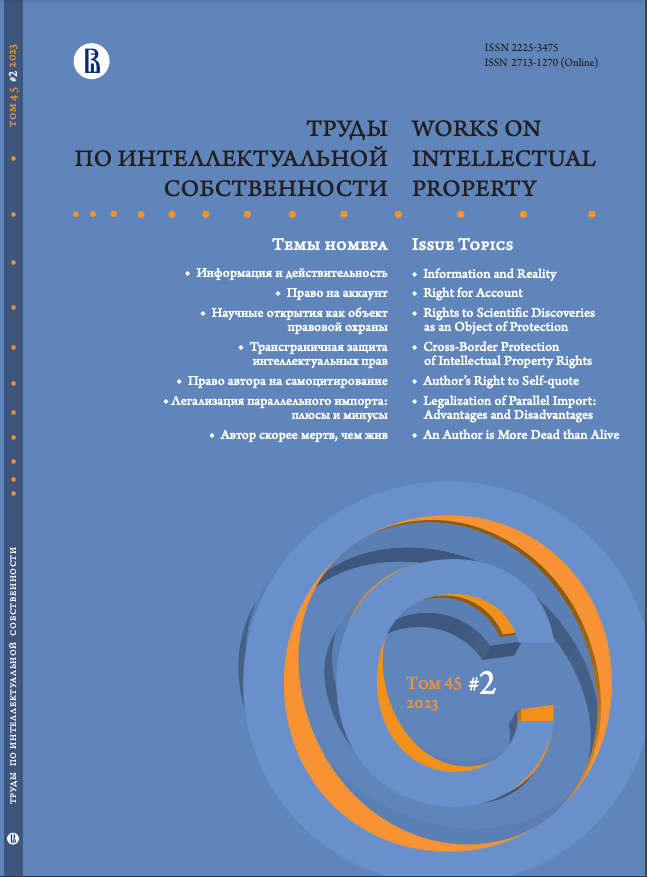QUESTIONS OF AUTHORSHIP RELATED TO ARTIFICIAL INTELLIGENCE: INTERNATIONAL LAW ENFORCEMENT PRACTICE
Abstract
Artificial intelligence is increasingly encroaching on the conceptual constant in the classical paradigm of understanding the source of creativity: many authors no longer share the traditional approach, according to which the author of works can only be a person. However, the international law enforcement practice of recent times, especially in countries with a precedent judicial system, is still based on the traditional understanding of the subject of authorship. Isolated cases of recognition of the author's component in the works generated by artificial intelligence are mainly corrected by the law enforcement agencies themselves, who made these errors. As attempts to recognize the authorship of artificial intelligence still continue, so far law enforcement agencies issue clarifications on the procedure for assessing authorship in works created using it. In addition, the world community is wary of using generation tools containing modern AI systems and suggests taking a six-month break to address ethics issues in this area (namely, in an open online letter “Pause Giant AI Experiments: An Open Letter” dated March 22, 2023).


